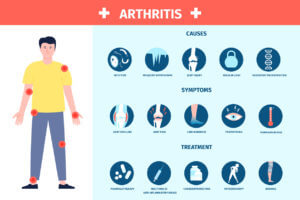According to the Diabetes Research Institute and the Centers for Disease Control and Prevention (CDC), 37.3 million Americans – 11.3 percent of the population – have diabetes. Of those, approximately 8.5 million have the disease but have not yet been diagnosed. There are three main types of diabetes, including: Type 1, in which the body
Read MoreBlog
What You Need to Know About Nephrology
Did you know that chronic kidney disease (CKD) is one of the leading causes of death in the United States? Most people take their kidney health for granted, yet CKD affects approximately 37 million adults according to the National Kidney Foundation, and as many as 90 percent of adults might not even be aware that
Read MoreWhat Is A Pulmonary Clinic?
What do asthma, emphysema, COPD, pneumonia, and bronchitis all have in common? These are all common lung diseases that – along with other conditions such as work-related pulmonary disease, sleep disorders, and lung infections and cancer – are the focus of a branch of medicine known as pulmonology. Doctors specializing in this field are called
Read MoreMOST COMMON RHEUMATOID ARTHRITIS SYMPTOMS
According to the American College of Rheumatology, more than 1.3 million people in the United States suffer from rheumatoid arthritis (RA) and about three-quarters of RA patients are women. Unlike osteoarthritis, RA is a chronic inflammatory disorder that affects more than just the joints. In some cases, it can damage a wide variety of vital
Read MoreWHY FINDING A GOOD GASTROENTEROLOGIST IS IMPORTANT
If you experience symptoms such as abdominal pain, bloating, constipation, diarrhea, heartburn, or nausea, your primary care physician (PCP) will likely refer you to a gastroenterologist for diagnosis of your specific digestive disorder. Also known as a GI doctor, a gastroenterologist is a specialist who treats a broad spectrum of conditions affecting the gastrointestinal (GI)
Read MoreHow to Know if You Are Suffering from Thyroid Dysfunction
If you are experiencing certain thyroid dysfunction symptoms, such as gaining or losing weight, having trouble sleeping, feeling unusually fatigued, and having unusually strong sensitivity to heat or cold, it could point to a number of medical conditions. For instance, these and other symptoms might indicate thyroid dysfunction in the form of hyperthyroidism (too much
Read MoreHOW TO CHOOSE A NEPHROLOGIST
When unusual medical symptoms develop, it is always better to see a specialist earlier rather than later. Take, for example, the signs and symptoms associated with a kidney disorder or disease, such as muscle cramps, urinating more or less, swelling of feet and ankles, loss of appetite, nausea, vomiting, fatigue and weakness, high blood pressure,
Read MoreLEARN THE DIFFERENT TYPES OF ARTHRITIS
Did you know that there are more than 100 types of arthritis and related diseases? Of these, several kinds of arthritis are the most common and can cause debilitating pain that hampers with your quality of life in many ways. According to the Centers for Disease Control and Prevention, more than one-third of adults who
Read MoreTips from a Rheumatologist for Your Arthritis
Rheumatoid arthritis is a chronic inflammatory disorder that can affect the jointsand other body systems, including the eyes, skin, lungs, kidneys, heart, and blood vessels. It is an autoimmune disorder that occurs when the immune system mistakenly attacks the body’s own tissues. Symptoms of rheumatoid arthritis can vary in severity and caninclude tender, warm, and
Read MoreTop 10 Reasons to See a Digestive Health Specialist
Digestive health specialists, or gastroenterologists, focus on the diagnosis and management of conditions affecting the esophagus, stomach, intestines, liver, pancreas, gallbladder, colon and rectum. Whether you are experiencing minor symptoms or have a serious long-standing disorder, a digestive health specialist can provide the expert care you need. There are a variety of disorders that can
Read More












